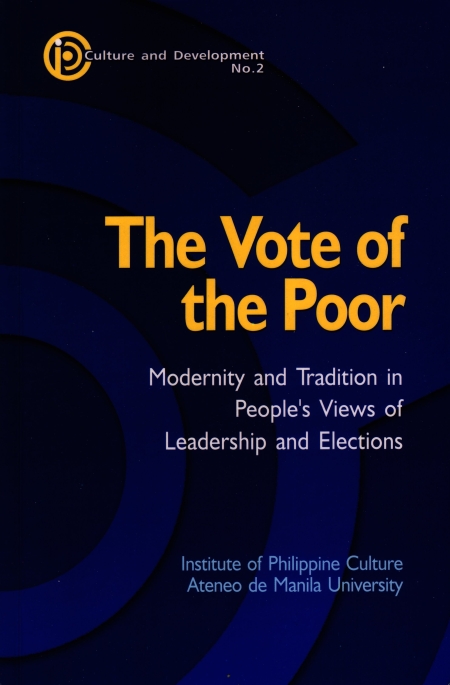 This is an interesting study from the Philippines about the electoral behaviour of the poor. It probably won’t mean much to those who assume that those with different political opinions lack ethics, but for those with more open minds it contains many useful insights into local political culture. Here is a brief extract from the preface:
This is an interesting study from the Philippines about the electoral behaviour of the poor. It probably won’t mean much to those who assume that those with different political opinions lack ethics, but for those with more open minds it contains many useful insights into local political culture. Here is a brief extract from the preface:
Contrary to stereotypes, the poor follow a mode of rationality in their participation in the electoral process. This study belies the simplistic notion of the “dumb masa,” which entered into wide currency following the dramatized resistance against the ouster of Joseph Estrada from the presidency … But idealising and romanticising the poor … is far from the object of this study. If anything, the study’s findings on people’s notions of leadership and elections are complex and multifaceted. Their views are not homogenous and, strictly speaking, there is no “poor vote.” Not only is there no singularity buy many of the views of the study participants also resonate with those of members of middle and upper classes. Philippine political culture is indeed richly textured and cuts across social classes, ethnicities, and geographic boundaries.
 Facebook
Facebook  Twitter
Twitter  Soundcloud
Soundcloud  Youtube
Youtube  Rss
Rss